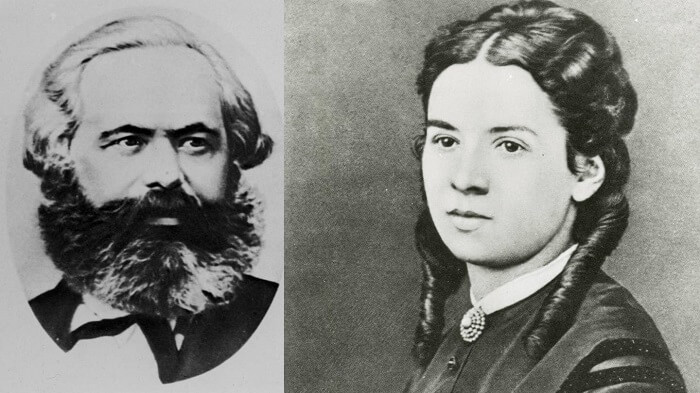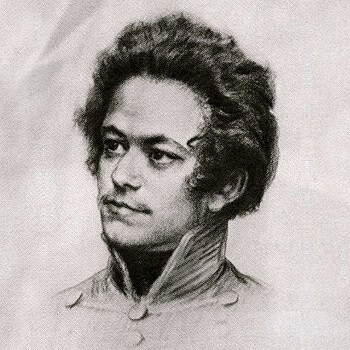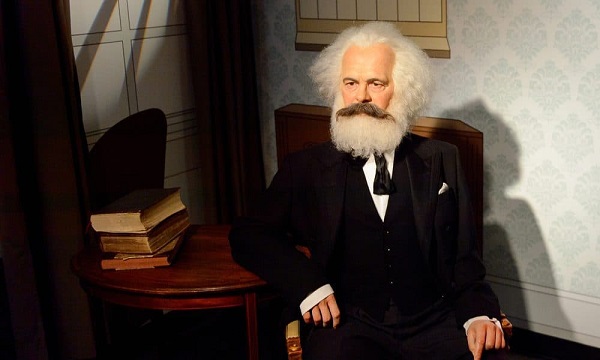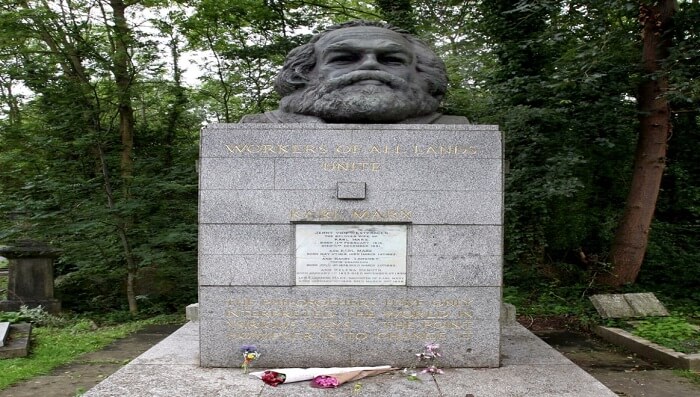Karl Marx
The great economist and philosopher Karl Marx is the founding father of socialism. He spoke out against the unfair treatment of workers due to his revolutionary beliefs. Along with this, he vigorously attacked capitalism and created the fundamental principles of communism. In addition, Karl Marx produced several outstanding works for the benefit of women. Karl Marx provided the public with explanations of economic and political situations through his writings and theories and his theories on human nature and economic power. His views on democracy and religion were the only roads to socialism. So let's learn more about Karl Marx, the founder of socialism. BirthIn a Jewish household, Karl Marx was born on May 5, 1818. He was born in Prussia's Rhine province in a village named Tricher. He had a Jewish mother who was from Holland. He was raised in observance of Jewish customs up until the age of six. FamilyThe mother of Karl Marx was a Dutch lady from Hollande, while the father was a lawyer by profession. Even though both of his parents were Rabbis who taught Judaism, Karl Marx was the first to survive nine children born to his parents. His father actively supported Voltaire and Kant and took part in the struggle for a Prussian constitution. Karl's father had become a Christian in the Evangelical Establishment Church a year before Karl's birth. He wasn't Catholic, but because he was married to a Lutheran, it may be claimed that he converted to the faith. Karl's mother didn't become a Christian until after his father died. EducationKarl Marx was an average student, even though he had never been particularly intellectually brilliant. He stayed at home and completed his initial studies. Later, he completed his education at Trier's Jesuit High School. Then, in 1835, at 17, he enrolled at the University of Bahn to further his studies in philosophy and literature. Karl Marx found Hegel's thought to be quite attractive. He joined the University of Bahn intending to study literature and philosophy, but at his father's advice, he instead focused on law. Marx joined the University of Berlin in 1836. As a result of his extensive study of Hegel's philosophy, Karl Marx's philosophy shows Hegel's impact. Married Life
In 1836, Karl Marx was engaged to Jenny Vonwestfalen, but his father, incensed by his son's carelessness, informed him that his wife was a member of the nobility. It took them seven to eight years to get married, so they should act adequately. In 1843, Karl Marx wed, and the two of them later relocated to Paris. Following their marriage, both had seven kids. Early Life and Childhood
Karl had notions concerning how religion can contribute to society and how it may alter a person's life and ability to affect change because of his experiences with prejudice and discrimination due to his Jewish heritage. Karl attended a Lutheran elementary school but finally scrapped both Judaism and Christianity and became an unbeliever who did not believe in God and believed in physical reality. He was the one who referred to current communism as the opiate of religion. Marx was an average student who spent his first 12 years of education at home before spending the next five years (1830-1835) at the Friedrich Wilhelm Gymnasium in Trier, a Jesuit and high school. The school's principal, a Liberal and Kantian who was well-liked by the people of Rheinland, was Karl's father's personal friend. However, the authorities had doubts, and the school was eventually destroyed in 1832 after being closely watched. Marx wrote throughout this time with a sense of sacrifice for humanity and devotion to Christian society while studying history, math, literature, and languages like Greek and Latin in the gymnasium. In later years, Karl also picked up languages like Spanish, Italian, Dutch, Scandinavian, Russian, and English. Karl was fluent in French and Latin and could read and write all these languages. Although his German accent was audible when speaking, it is clear from his piece published in The New York Daily Tribune how well he spoke English. He also had a soft spot for Shakespeare. Career
Karl has shown a more significant commitment to humanity in his studies. Marx began attending the University of Bonn in October 1835, where he freely relished his time as a student in this revolutionary environment. He was jailed for less than a year for drinking, causing a disturbance, and indiscipline. In addition, he served as the Tavern Club's president and joined the Poet's Club, which also contained political activists. Karl Marx, therefore, came into contact with political and rebellious life in Bonn. For interfering with the federal diet session in Frankfurt, many students were deported. Marx left Bonn a year later to study law and philosophy at the University of Berlin after his father demanded that he do so at the end of the academic year. Marx attended law school and philosophy classes in Berlin, where G.W.F. Hegel taught philosophy. Initially dismissive of Hegel, Marx allied himself with some young Hegelians (Hegelians were a group of students who condemned the religious and political conditions of the day, including Bruno Bauer and Ludwig Feuerbach). Marx earned his doctorate from the University of Jena in 1841, but despite this, he could not find employment in the field of education due to his radical political views. He started his career as a writer in 1842 and rose to the editor position at the liberal Reminisce Zeitung in Cologne. The government was given the go-ahead to control the journal a year later. This was scheduled to go into effect on April 1, 1843, but Marx resigned on March 18. Karl and Arnold Ruse founded the Deutsch-Französische Jahrbücher political newspaper in Paris. It is published annually. In actuality, Paris served as the primary hub of European politics in 1843. Still, the magazine struggled to gain traction because Arnold Reuse and Marx had disagreements after publishing only one issue. Marx made a lifelong friendship with Friedrich Engels, a magazine writer, in August 1844. They collaborated on the book Critique of the Philosophical Theories of the Young Hegelian Bruno Bauer, Marx, and Engels. The Holy Family was the title of the original edition of the same work, published in 1845. Later, Marx relocated to Belgium's capital city of Brussels and started penning articles. Marx started working on socialism and wholly distanced himself from Hegelian philosophy in Brussels, where he also wrote German Ideology, in which he introduced the concept of historical materialism. However, Marx could not publish German Ideology, and his completed thesis on Feuerbach was not made public until after his passing. For the following two years, Karl resided in Brussels and worked for Engel. They met in Manchester, England, where the textile company owned by Engel's father had a branch facility. Engels, a fellow Young Hegelian, was persuaded to join the Communist Party by the communist rabbi Moses Hess. Due to their same views, Engel and Marx collaborated to write Die Heilige Familie in 1845. In the years that followed, he also wrote Die Deutsche Ideologie, which was published in 1932 and explained the historical structure of society and how the economically able class has dominated it. However, when it was written, this book did not find a publisher and remained unpublished for the entirety of the author's life. Thus, in Brussels, Karl complemented the movement of the working-class leaders and intelligently pursued it. It had already been pointed in the right direction when Marx established the Communist Correspondence Committee in 1846 to bring the socialists of Europe and the surrounding regions together. The Socialists of England adopted his concept, held a convention, and established the Communist League. In 1847, the league encouraged Marx and Engels to draught a platform for the Communist Party at the London Central Committee meeting. In 1847, he also attacked Pierre-Joseph Proudhon's Poverty of Philosophy theory. In contrast to Marx, who believed that there could never be harmony between two opposing poles in an economic system, Proudhon attempted to bring economic institutions and keep some positive characteristics while removing the negative. The Communist Manifesto was released in 1848, and shortly after Marx was thrown out of Belgium in 1849, he moved to France to try to start a socialist revolution. However, he was also driven out, and Prussia refused to grant him refuge. Marx traveled to London for this reason, even though Britain similarly refused to grant him citizenship; he stayed there until his death. Revolutions occurred in Europe, France, Italy, and Austria in 1848. Marx was permitted to leave Belgian by a Provisional Government of Paris member. As soon as the revolution began in Austria and Germany, Marx left and headed back to the Rhineland. Marx advocated for a partnership between the Democratic bourgeoisie and the working class in Cologne, which led to resistance to the workers' union candidate's nomination in the Frankfurt Assembly. Engels' choice to destroy the Communist Manifesto and abolish the Communist League had his approval. Marx had already outlined his strategy in the New Rheinische Zeitung, a publication founded in June 1849, and called for a new constitution and a conflict with Russia. The first Rhineland Democratic Congress was also convened in August 1848. Marx continued to work as a writer for the New York Daily Tribune from 1852 to 1862, which helped him make a livelihood. He assisted the German Workers Educational Society in London and established the Communist League's headquarters. Angles assisted him in this because he could not even make the requisite money. Marx started concentrating on capitalism and economic theory, and he released the first volume of Das Capital in 1867. The remainder of Marx's life was devoted to writing the second book. Still, he could not finish it before his passing, and Engels was the one who finally gathered and published both of the remaining volumes. Karl Marx BooksIn 1848, Karl Marx published "The Communist Manifesto." His creations rose to great fame. In addition, his writing has been regarded as one of the most important political works ever written. His work was first published in French, then translated and released in English in four parts. In addition, he also wrote the book Das Capital, which rose to fame. It quickly rose to the top of the bestseller list and was published in three volumes with English, German, French, and Russian translations. Let us inform you that Engels revised and released the remaining chapters of this work after Marx passed away. Books by Karl Marx
Karl Marx Quotes
Karl Marx Death
In the last days of Karl Marx, terrible diseases surrounded him and in 1881 he was also mourning the loss of his wife. As a result of this lack of care, his health did not improve, and he died in London on March 14, 1883.
Next TopicKeanu Reeves
|
 For Videos Join Our Youtube Channel: Join Now
For Videos Join Our Youtube Channel: Join Now
Feedback
- Send your Feedback to [email protected]
Help Others, Please Share










